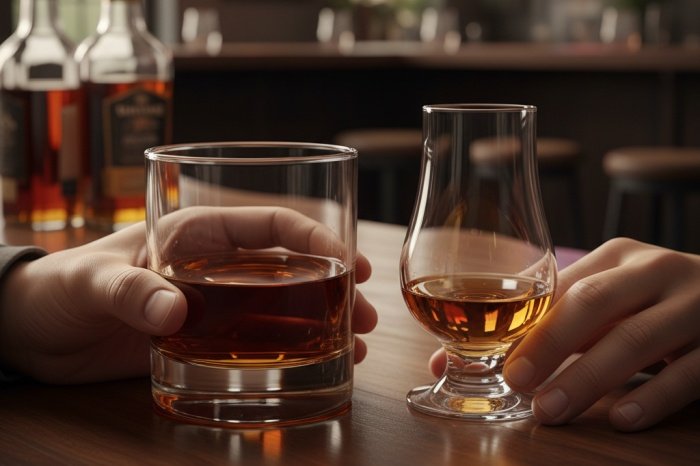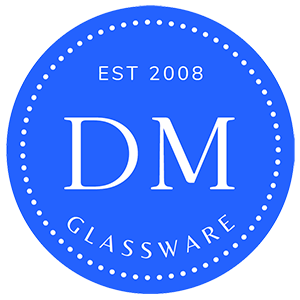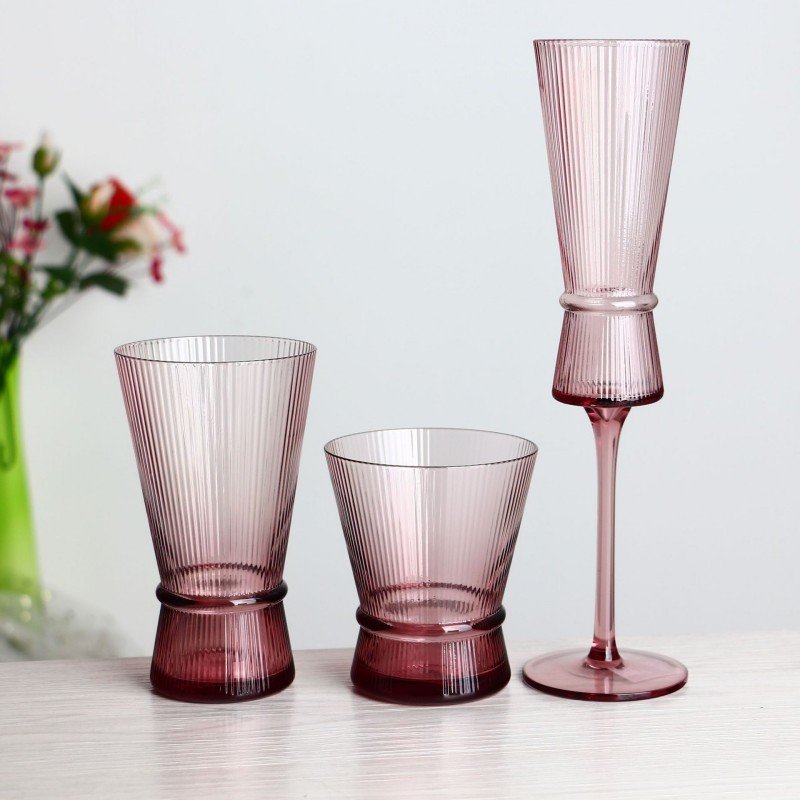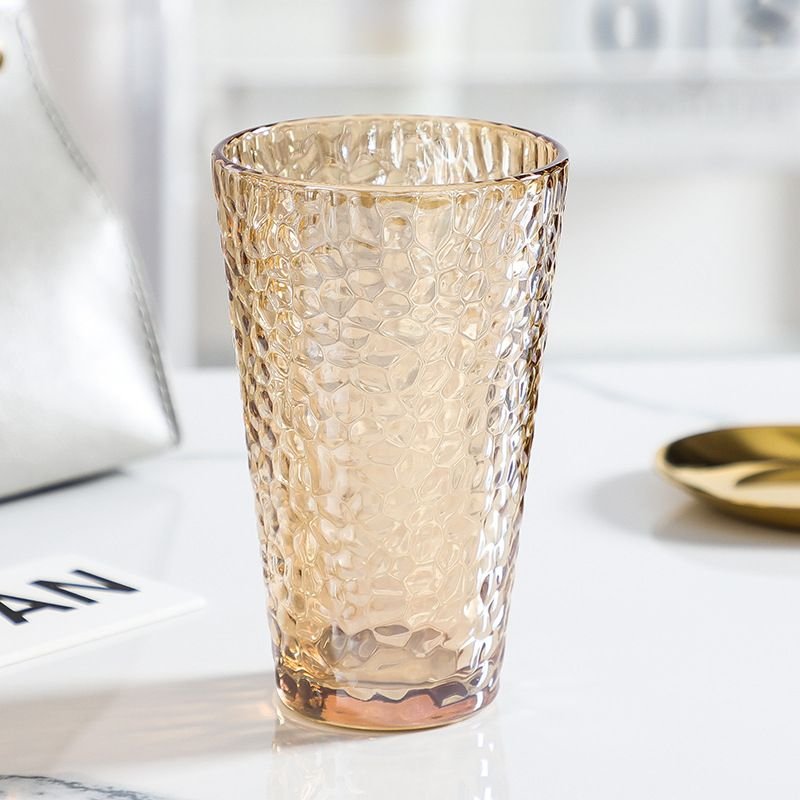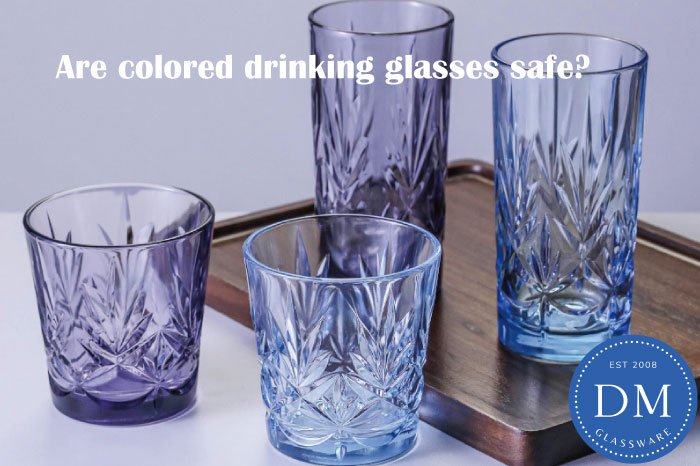
Are Colored Drinking Glasses Safe?
Why Colored Glass Safety Matters for Bulk Buyers
Let’s face it: When you’re buying glassware in bulk, the stakes are high.
Why?
Because the wrong choice can impact not only your customers’ health but also your brand’s reputation.
Here’s the deal:
Not all colored drinking glasses are created equal. Some may contain harmful substances like lead or cadmium that could leach into beverages. But don’t worry—we’re here to break down everything you need to know about making safe, informed decisions for your business.
Ready to dive in? Let’s get started.
Are Colored Drinking Glasses Safe?
The Science Behind Glass Coloring
Glass Materials with Intrinsic Color
Some glass materials achieve color naturally during production by incorporating specific minerals like cobalt or chromium. For example, borosilicate and soda-lime glass can display vibrant colors without additional coatings. These glasses are inherently colored, making them a safer and more reliable choice for businesses concerned about health risks and durability.
In bulk purchases, inherently colored glass stands out as a practical option due to its resistance to chemical leaching and its compliance with food safety standards. These qualities ensure long-term reliability and reduced concerns over potential contaminants.
Post-Production Coloring: Sprayed and Painted Glass
Sprayed and painted glass uses post-production methods to add color to clear glass. This process involves applying layers of enamel or paint, creating striking designs and vibrant finishes. However, these techniques come with risks.
The materials used for sprayed colors may contain heavy metals like lead or cadmium. Without proper sealing or testing, these substances can leach into beverages, especially when exposed to heat, acidity, or frequent use. This makes it essential for businesses to verify the safety and compliance of painted glass with regulatory standards before committing to bulk purchases.
Choosing natural colors over sprayed finishes is often the safer and more dependable option for industries prioritizing health and sustainability.
Comparing Glass Coloring Methods
Natural Color vs. Sprayed-On Color
Glass with natural intrinsic color has several advantages over post-production color applications.
| Aspect | Natural Color (Intrinsic) | Sprayed-On Color (Post-Production) |
|---|---|---|
| Source of Color | Minerals added during production (e.g., cobalt) | Applied as enamel or paint after manufacturing |
| Durability | High; resistant to chipping or fading | Moderate; coatings may peel or degrade over time |
| Chemical Safety | Minimal risk of leaching | Potential risk of lead or cadmium contamination |
| Dishwasher Safety | Generally safe for repeated washing | May degrade with frequent dishwasher use |
| Aesthetic Flexibility | Limited to naturally achievable colors | Wide variety of vibrant and custom designs |
| Food-Grade Compliance | Easier to ensure | Requires rigorous testing and certifications |
| Long-Term Reliability | Excellent; highly sustainable | Moderate; depends on quality of applied coating |
What Businesses Need to Know About Sprayed Colors
Sprayed-on coatings can sometimes contain heavy metals like lead or cadmium, posing potential health risks. These contaminants may leach into beverages under certain conditions, such as high temperatures or acidic liquids, raising concerns about customer safety.
Ensuring food-grade compliance for painted glassware can be challenging. Businesses must work with reputable suppliers who adhere to strict safety standards, conduct thorough testing, and provide certifications. For bulk buyers, verifying these details is crucial to avoid liabilities and maintain brand trust.
Opting for natural colors or rigorously tested sprayed finishes ensures your glassware meets both aesthetic and safety needs without compromising quality.
Testing and Certification for Bulk Orders
Ensuring Glassware Quality for Large Purchases
Businesses purchasing glassware in bulk must prioritize safety and compliance to protect customers and maintain brand reputation. Verifying FDA compliance is a critical step to ensure that the glassware meets food safety standards. Similarly, for international markets, adherence to EU regulations and other regional requirements is essential.
Key certification marks to look for include:
- Food-safe labels indicating compliance with regulatory bodies.
- Heavy metal-free certifications to ensure the absence of lead or cadmium.
- Dishwasher-safe symbols, especially for commercial settings.
Choosing certified glassware minimizes risks and demonstrates a commitment to customer safety.
Practical Steps for Glassware Quality Testing
To ensure safety, businesses should incorporate sample testing into their procurement process. This includes:
- Leach testing for potential contaminants like heavy metals or toxic coatings.
- Verifying durability and dishwasher compatibility through stress tests.
Partnering with a trusted manufacturer like DM Glassware streamlines this process. Suppliers that provide documentation of testing and certifications offer peace of mind for bulk orders, ensuring compliance with food-grade standards and minimizing liability risks.
Investing in rigorous quality testing helps businesses build trust and long-term customer loyalty.
Care and Maintenance: Business Considerations
Tips for Maintaining Bulk Glassware Orders
Proper care is essential to preserve the quality and longevity of colored glassware, especially for businesses handling large inventories. Key practices include:
- Gentle cleaning techniques: Use mild detergents and non-abrasive sponges to prevent scratching or damaging the glass surface.
- Avoiding temperature shocks: Gradual heating or cooling prevents cracks caused by thermal stress.
For shipping and storage, ensure:
- Protective packaging: Use padded materials to minimize movement and prevent breakage.
- Controlled environments: Store glassware in temperature-regulated spaces to avoid damage from heat or humidity.
Adopting these practices can significantly reduce losses and maintain the professional appearance of your inventory.
Dishwasher Safety for Commercial Use
For businesses, dishwasher-safe certifications are critical. Frequent use in commercial dishwashers requires glassware that can withstand high temperatures and harsh detergents without degrading.
To maintain sprayed or painted glassware:
- Limit dishwasher cycles: Hand washing is preferable for preserving post-production finishes.
- Use gentle cycles: When machine-washing is necessary, opt for lower temperature settings and milder detergents.
Choosing durable, dishwasher-compatible glassware ensures efficiency and reduces wear and tear, making it a smart investment for bulk buyers.
Making an Informed Decision
How to Choose a Reliable Glassware Supplier
Selecting a trustworthy supplier is crucial for businesses sourcing glassware in bulk. Key questions to ask include:
- Material safety: Are the glasses free from harmful substances like lead or cadmium?
- Coloring processes: Are natural or post-production coloring methods used, and how are they tested for safety?
- Certifications: Can the supplier provide FDA compliance or food-grade certifications?
DM Glassware stands out as a reliable partner, offering high-quality, stylish glassware that meets rigorous safety and durability standards. Their expertise in sustainable production and safe coloring methods makes them a preferred choice for businesses.
Final Considerations for Bulk Buyers
When deciding between natural and sprayed-on color glassware, businesses must weigh the benefits of durability and safety against design flexibility. Natural-colored glass provides long-term reliability, while sprayed finishes require additional scrutiny for safety compliance.
Investing in safe glass alternatives enhances customer trust and reinforces your brand’s commitment to quality and care. Choosing suppliers like DM Glassware ensures your purchases align with both practical and ethical standards, creating a positive impact on your business reputation.
DM Internal Inspection Standard
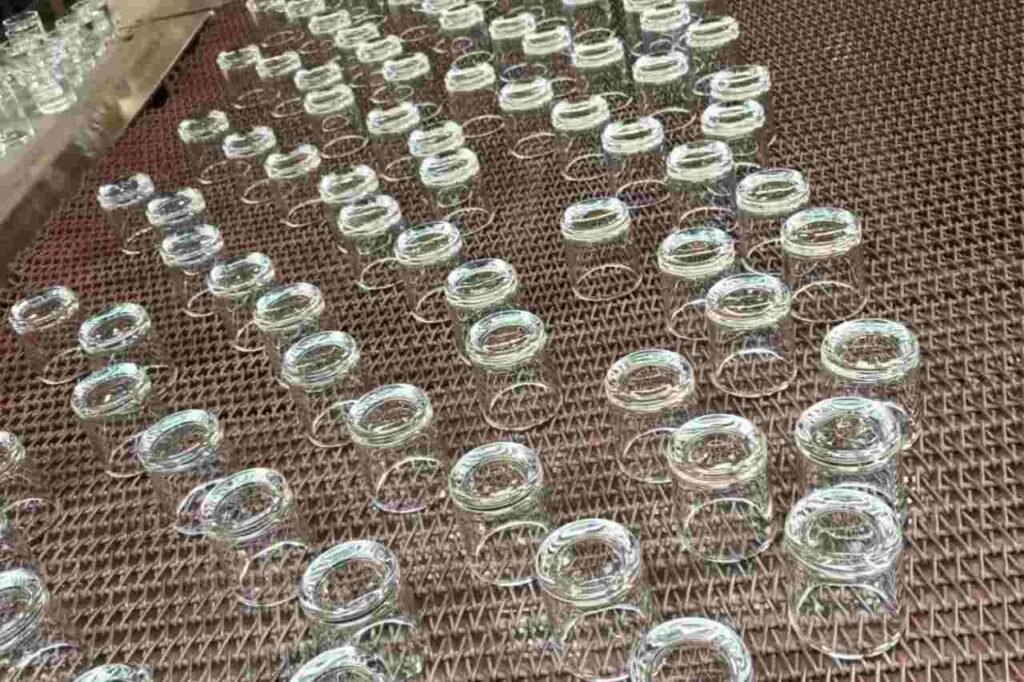
Quality Checking During Mass Production
During mass production, we focuse on maintaining high-quality standards.
- Material Inspection: We start by verifying the quality of raw materials to ensure they meet our specifications.
- In-Process Checks: Throughout production, we monitor key stages to detect any defects early.
- Post-Production Inspection: Final products are inspected for defects like cracks or bubbles.
- Packaging Inspection: We ensure secure packaging to prevent damage during shipment, guaranteeing high-quality products upon delivery.
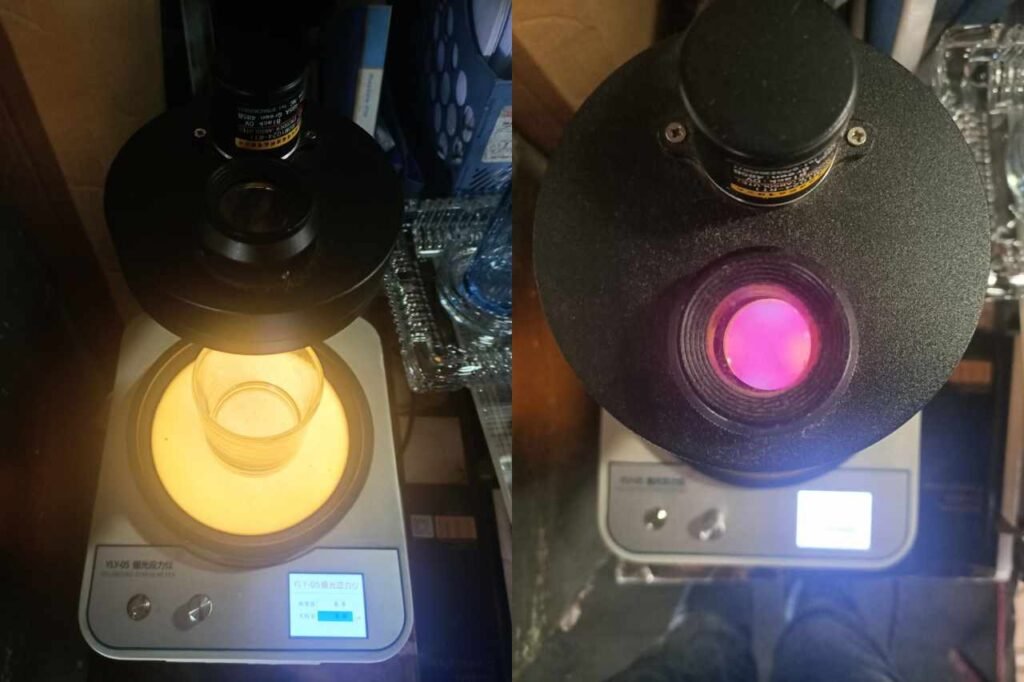
Stress Testing For Every Batch Of Goods
This process involves applying pressure and impact to test the durability and strength of our glassware products.
By doing so, we ensure that each item can withstand regular use and meet the high standards expected by our customers. This helps us identify any weak points before the products are shipped, guaranteeing that only the best quality glassware reaches the market.
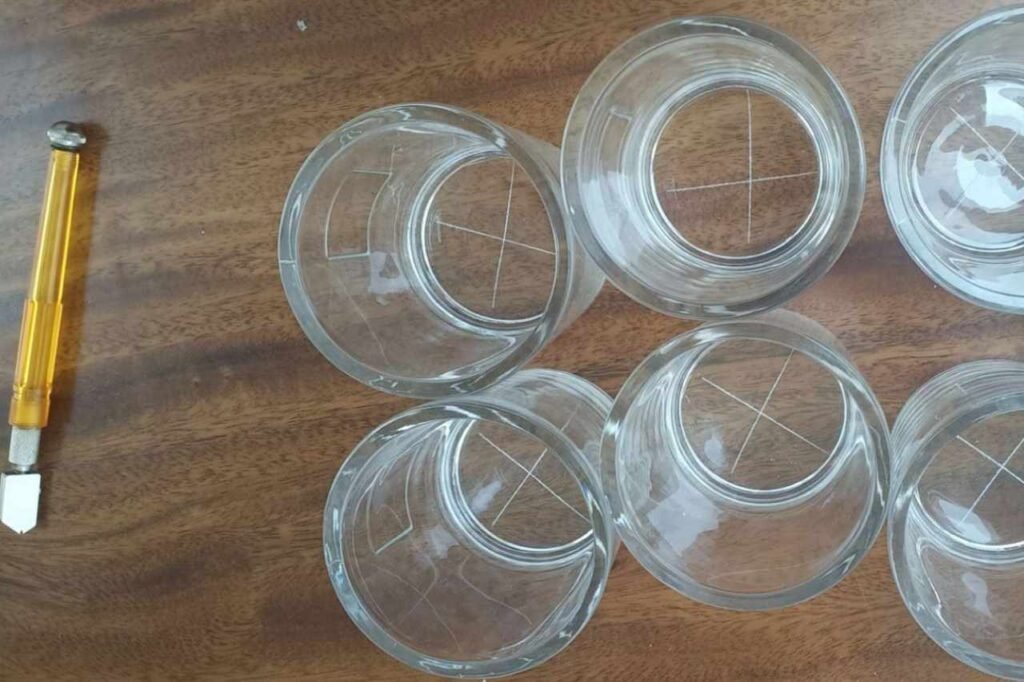
Hot and Cold Cataclysm Test
At DM Glassware, we also perform Hot and Cold Cataclysm Tests to ensure the durability of our products.
This involves rapidly exposing the glassware to extreme temperature changes, such as transferring it from a hot environment to a cold one, to test its resistance to thermal shock.
This process helps us ensure that our glass products can withstand sudden temperature shifts without cracking or breaking, ensuring they are durable enough for everyday use in kitchens and households.

Appearance Checking
On glassware on line production, we carefully inspect each item for visible defects, such as scratches, bubbles, or uneven surfaces.
This step helps guarantee that our products not only function well but also look beautiful, providing customers with glassware that is flawless in both performance and appearance.
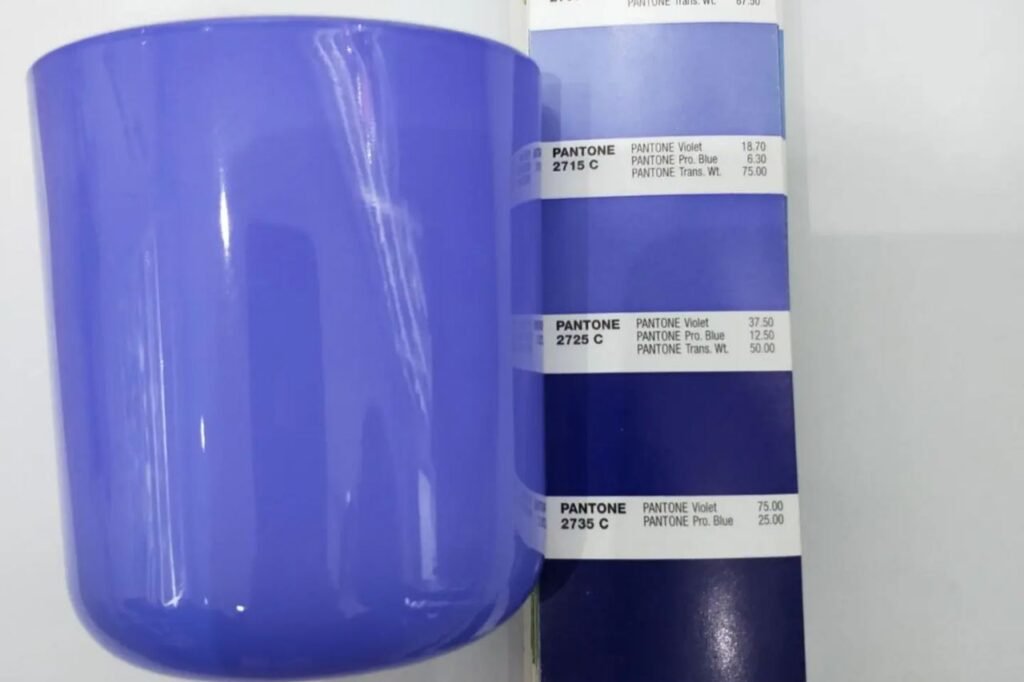
Samples with right Pantone Color
While doing color painting, we must ensure that the final products meet the brand and design specifications of our clients, maintaining high standards of visual appeal and branding accuracy.
Before mass production, we need to confirm sample proof. It’s a necessary step to make everything right.
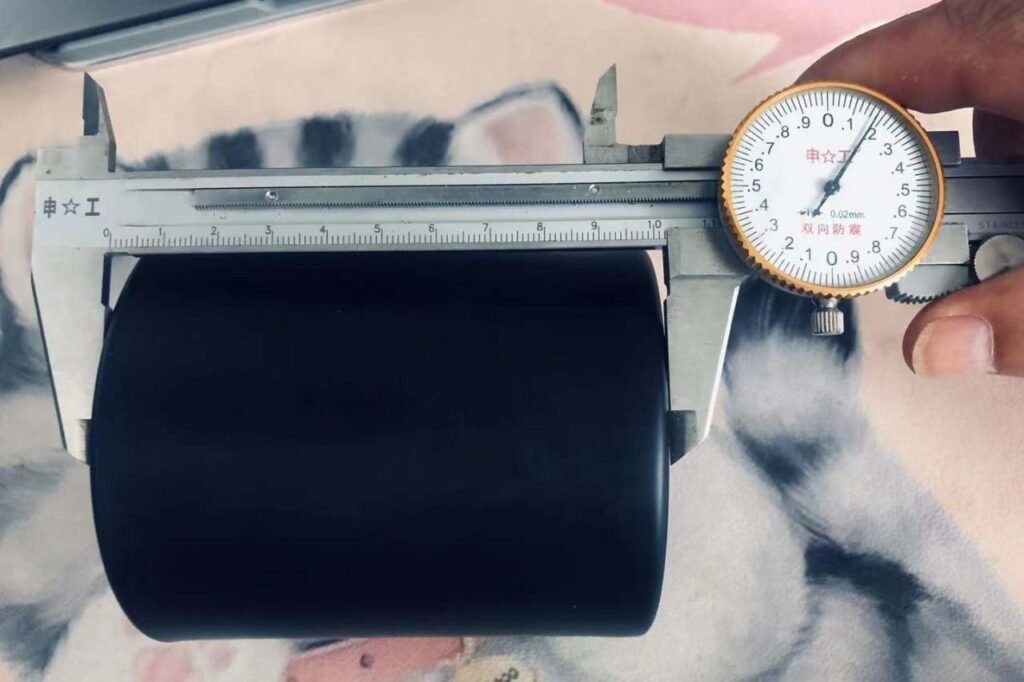
Check All Datas of Dimension
By verifying these dimensions, we maintain consistency across batches and ensure that every item fits the intended design and functional requirements.
This step is crucial, especially for custom orders, where accuracy is vital to ensure the glassware meets the client’s expectations and performs well in its intended use.
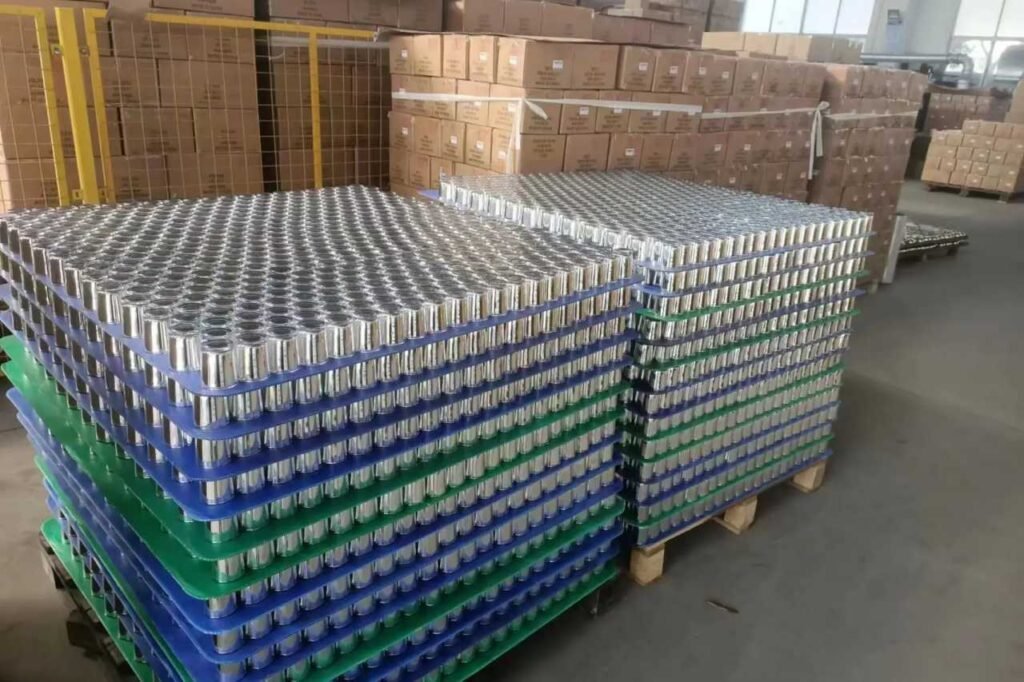
Standardize The Production Process
DM Glassware is setting clear guidelines and procedures for each step of production, from material selection to final inspection.
By following standardized protocols, we ensure that every item produced meets our strict quality standards, reduces the margin for error, and improves overall efficiency.
FAQ For Colored Drinking Glasses
Are colored drinking glasses safe for everyday use?
Yes, colored drinking glasses can be safe if they are made with food-grade materials and meet safety certifications like FDA compliance. However, naturally colored glass is generally safer than post-production sprayed or painted glass, which may contain harmful substances like lead or cadmium.
Does Coloured Glass Contain Lead?
Coloured glass can contain lead, but it depends on how the glass was made and the materials used. Some older or vintage coloured glassware, as well as certain post-production painted or sprayed glass, may use lead-based compounds to enhance vibrancy or durability.
What Is the Safest Glassware?
The safest glassware is made from food-grade materials that do not leach harmful substances, even with regular use. Here are some of the safest options:
Naturally Colored Glass
Glass that achieves its color through natural minerals during the manufacturing process, such as borosilicate or soda-lime glass, is safe and durable.Tempered Glass
Known for its strength and heat resistance, tempered glass is free of harmful chemicals and ideal for both home and commercial use.Clear Glass
Transparent, uncolored glass is generally safer because it doesn’t rely on pigments or coatings that could contain toxic elements.Certified Lead-Free Glass
Glassware labeled as “lead-free” or certified to meet FDA or EU food safety standards is a reliable choice.Eco-Friendly Recycled Glass
Sustainable and processed to meet food-grade safety requirements, recycled glassware is both safe and environmentally conscious.
Is sprayed or painted glassware dishwasher safe?
Sprayed or painted glassware may not always be dishwasher safe. The high temperatures and detergents used in dishwashers can degrade the coatings, causing peeling or leaching. Always check for “dishwasher-safe” labels or wash these items by hand to maintain their integrity.
How do I ensure my bulk glassware order is safe for use?
Partner with trusted suppliers who provide safety certifications and detailed information about their coloring and production processes. Conduct sample testing for chemical leaching and durability before committing to large-scale purchases.
Conclusion
Investing in safe, sustainable, and certified glassware is not just a smart choice—it’s essential for businesses that value customer trust and long-term success. By choosing glassware that meets high safety standards, you protect your customers, avoid regulatory issues, and enhance your brand’s reputation.
Partnering with reliable suppliers like DM Glassware ensures access to high-quality, stylish options that align with safety and sustainability goals. With their expertise and commitment to excellence, you can purchase with confidence, knowing your glassware will meet the demands of both your business and your customers.
DM Glassware is providing custom glasswares for various occasions.
Our main products are machine-made glasswares, glass cups, glass drinkwares and tablewares for home and kitchen use. Such glasses like glass tumblers, glass mugs, whiskey glasses, shot glasses, glass candy jars, glass bowls, beer glasses, etc.
We also recommend the most suitable packaging method based on different sales types, such as different display boxes, adding stickers, tags, etc.
Recent Posts

Are stemless wine glasses good for wine?
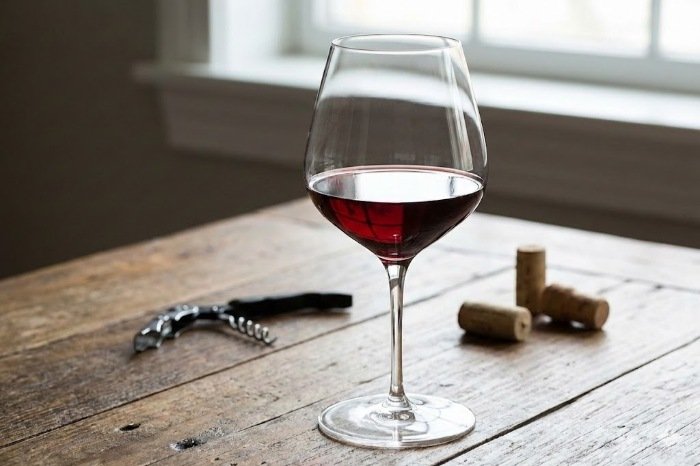
Which Wine Glass Is Best for Red Wine?

What Are the Different Types of Wine Glasses?
